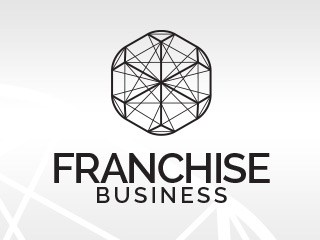
When an entrepreneur makes enough money to stop for a while and smell the roses, it’s not unusual to find that doing nothing just doesn’t suit their personality. That was certainly the case with Michael Sherlock, one of the founders of Brumby’s bakery who sold the business and moved on.
But while swanning around the Mediterranean might have seemed an ideal way to reap the benefits of a handsome business sale (though Sherlock maintains the dollars he pocketed are well below the figure of $40m often quoted) the appeal soon wore off.
Since I sold Brumby’s I didn’t want another full time job and I’m not one to play golf or yacht around. And I have a young family … We went to live in the south of France for six months – we stayed three.
The temptation of business proved too great a pull so Sherlock set himself a target: food franchises. It’s like a game of 500, when you start, you look at your hand and think ‘how can I improve it?’ You play according to your cards and I decided to collect diamonds.
He started a consultancy, did some public speaking and is on the board of several businesses. When you’re a CEO or MD you’re in the trenches, you can’t see too much. Now I fly over in a helicopter once a month, Sherlock explains of his consulting role after 30 years experience in franchising.
But then an opportunity emerged that had Sherlock hungry for more. A mezzanine finance provider had me looking at some businesses and Cold Rock Ice Cream was at a management buyout proposal. What did I like about it? Young kids love going there, it’s a different demographic, very gen X and Y because you can design your own ice cream. My son gets the most disgusting flavours, because he can.
My daughter gets strawberry and marshmallows because that’s what princesses would have. You can’t do that at Baskin Robbins. Both of them love the theatre of mixing the flavours, it really appeals.
Another attraction to the franchised ice cream model, says Sherlock, is its location away from high cost rental areas. It works on carbohydrate corners with other takeaways and restaurants; whether it’s sushi or Chinese or Thai, there’s not really a great argument for dessert, insists Sherlock. This is a pretty good model.
The simplicity of the system appeals too. Sherlock still owns five Brumby’s franchises which he regards as very complex with 200 products in the line-up, a perishable product that must be sold or thrown away, and success reliant on the skill of bakers.
With ice cream, the USP is adding flavours, making it fun. And you can upsell, add on the extras.
Standard opening hours of 10am to 10pm, no manufacturing, no skill levels required, and an easy to open and close procedure if you clean as you go, are all ticks on the scorecard for Cold Rock.
The system reminds him of Subway; its success due to a system that’s easy to duplicate and that lends itself to multi-unit ownership. I’m on the board of Krispy Kreme – Cold Rock has the same thing, everybody you talk to loves it.
Expansion of the business is swift too, with store openings a focus for the previous owners. When Sherlock started negotiating the portfolio comprised 50 stores; there were 86 when he began consulting.
Most franchise systems struggle around 30 to 40 units. Once you start employing people, you run out of capital, this is a really critical stage, explains Sherlock.
Cold Rock is over this. It has been around long enough. But it is in dire need of a lot of attention to detail and support for franchisees.
Sometimes I donÍt realise how much I know. I’ve learned what I know by making mistakes.
Any franchise system should aim to make money out of licence fees, not through opening new stores, he cautions. It’s fun to open stores but then you need to support franchisees going through every stage of their business journey.
Sherlock recommends a ratio of one field support to 18 franchises or 1 to 25. We want to put in really good systems of field support to help franchisees grow. Small business owners have a thousand little decisions to make.
Our franchisees have to follow systems, just apply them and focus on customer service.
In his words, the company has gone through rapid growth but a number of bricks are still not in place. At this size you can afford marketing, management, training, IT, property, a general manager purchasing.
Sherlock spoke to franchisees at the company’s annual convention about how the franchise can improve and found all franchisees really crying out for ideas and support; most want to open another store. We don’t see that as a profit centre, he adds.
Sales should be showing 10 to 15 per cent annual growth year on year. The outlook is good, says Sherlock. The business has potential for growth, refinement, and a focus on store culture. The dangers lie within the franchise community; getting franchisees to focus on and join in the program is imperative.
There is a process of accepting change and moving on. If you bring too much change too soon, the community won’t come with you, he warns.
Not doing anything is also a danger. All franchisees are happy making money. Franchisees have to be working hard and they will get a reasonable return on their investment. That’s why Brumby’s was successful, its franchisees were happy. You have to go in with your eyes open.
Creating a good franchise community culture, getting everybody talking and happy is essential. Incoming franchisees will get a well regarded brand that consumers respond to, improving culture, and greater field
support to help them on their journey.

